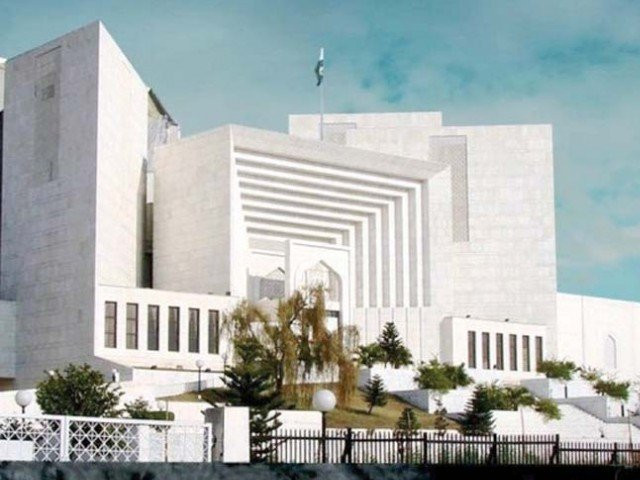No high court judge exempted from contempt proceedings: SC
Says any person, who violates any apex court order, makes himself liable to be proceeded against

PHOTO: FILE
A seven-judge Supreme Court bench, headed by Chief Justice Mian Saqib Nisar, issued a detailed judgment on the rejection of constitutional petitions of two Lahore High Court (LHC) judges against the apex court’s July 31, 2009 verdict. These judges had taken oaths under the Provisional Constitutional Order (PCO) which followed the promulgation of emergency by General (retd) Pervez Musharraf’s on Nov 3, 2007.
In the said order, the SC had declared the November 3 emergency and the PCO unconstitutional. Later, two LHC judges Justice (retired) Shabbar Razi Rizvi and Justice (retired) Syed Sajjad Hussain Shah had challenged numerous judgments related to them.
Contempt law: Outlawed
While authoring the 27-page judgment in the instant case, the chief justice said that if superior courts judges are declared immune from contempt proceedings, the whole judicial structure will be disturbed and would fall to the ground, as the orders of this court cannot be implemented in letter and spirit.
He said notices for contempt of court were issued to the petitioners as well as other PCO judges for violating the order of the SC, which had issued a specific direction to the judges of the high court not to take oath under the PCO or any other unconstitutional instrument.
“Sanctity has always been attached to a judicial order passed by this court in a pending case and no one can be allowed to frustrate it, or refuse to accede to it, or fail to follow a direction issued therein...Any person, who intentionally and deliberately violates any order of this court, makes himself liable to be proceeded against and punished for contempt of court,” the order said.
SC drops contempt proceedings against PCO judges
Regarding the maintainability of the constitutional petitions, the order said the petitioners had the remedy of challenging the judgment, if they were aggrieved by them, by filing review petitions, which they unsuccessfully attempted to do.
“They were party to Khurshid Anwar Bhinder’s supra case and their respective submissions were rejected and the review applications were accordingly dismissed for being not maintainable,” it added.
The court also observed that the July 31, 2009 judgment was issued in the supreme national interest and there appeared to be hardly any justification for a review. The order said that in such a situation, petitions under Article 184(3) were absolutely incompetent and not maintainable.
It said that where a person has the opportunity to file a review or appeal against a judgment, and either does so and fails, or does not avail that opportunity, or fails to become a party to any pending review or appeal filed by another person against the same judgment, they have no right to reagitate the matter through a petition under Article 184(3).
Contempt for the rest
Article 184(3) is a constitutional provision, which is meant for the purposes of enforcement of fundamental rights, where there is a question of public importance involved, it noted.
“It cannot be exercised as a parallel review jurisdiction by the court, especially when the remedy of review has already been availed or declined. Yes, a judgment of this court can be considered to be [based on lack of facts or legal merit] but it is for the judges to revisit any such judgment if and when pointed out by any person during the course of hearing of any other case,” it said.
According to the verdict, such a finding would be premised on the court finding the same judgment to be against any provision of the Constitution or the law, or principles already settled by a larger bench of the court.
It said it is not the right of a person, who would have no legal standing under Article 184(3) to file such a petition, particularly in the situation where the review jurisdiction has been invoked and the same review has been dismissed.
“…Thus, such judgment (under review) can never be challenged by virtue of filing independent proceedings under Article 184(3) of the Constitution. This would be an abuse of the process of law and is absolutely impermissible. Resultantly, we do not find any merit in these petitions, which are accordingly dismissed,” said the judgment.



















COMMENTS
Comments are moderated and generally will be posted if they are on-topic and not abusive.
For more information, please see our Comments FAQ